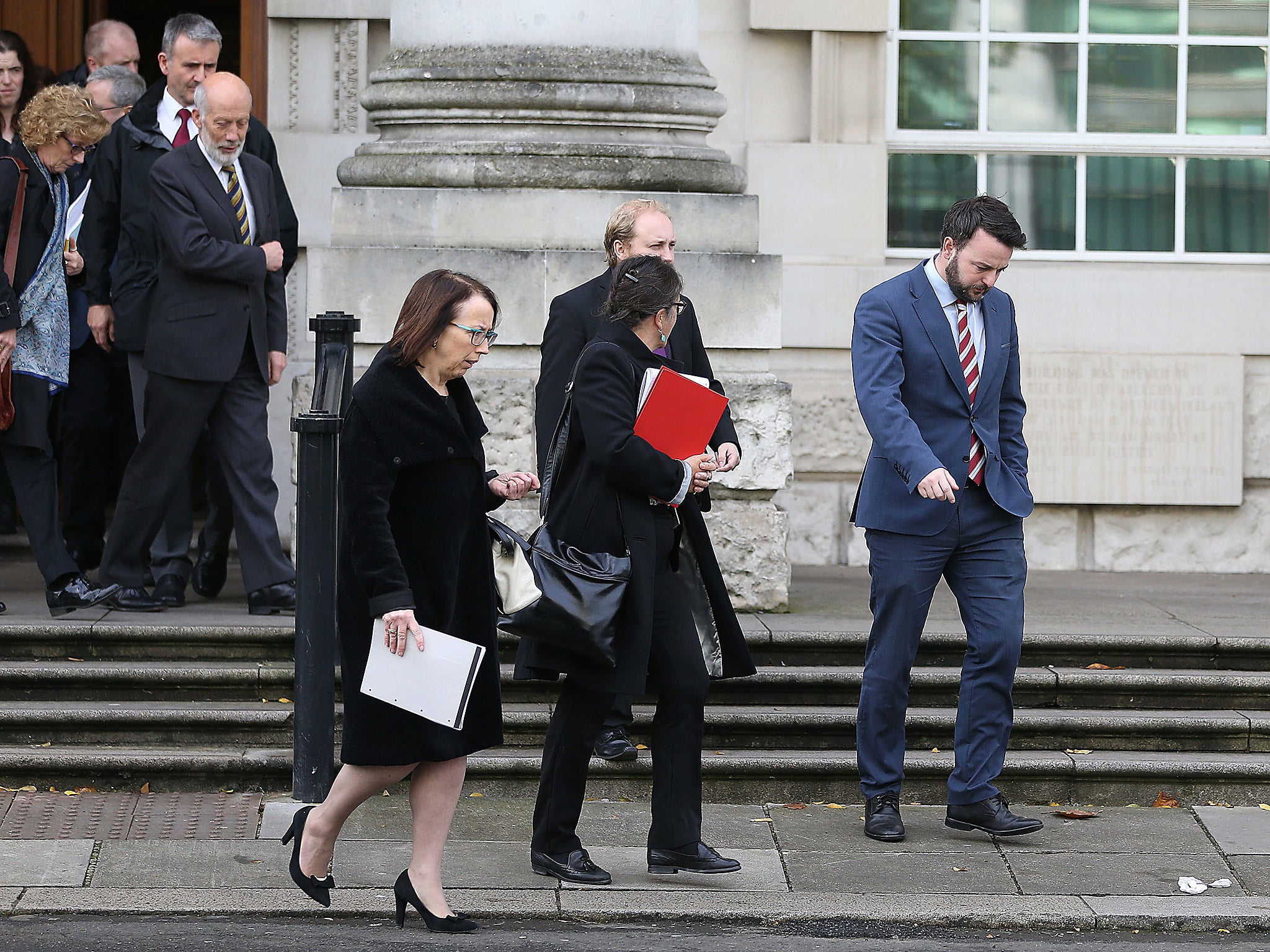Theresa May was trying to 'reverse the result of English Civil War' by triggering Article 50 without a vote, says top lawyer
'If the Prime Minister and her Attorney General are so ignorant of the constitution’s obvious requirements then it’s certainly time to write it down and teach it,' Geoffrey Robertson QC says

Your support helps us to tell the story
From reproductive rights to climate change to Big Tech, The Independent is on the ground when the story is developing. Whether it's investigating the financials of Elon Musk's pro-Trump PAC or producing our latest documentary, 'The A Word', which shines a light on the American women fighting for reproductive rights, we know how important it is to parse out the facts from the messaging.
At such a critical moment in US history, we need reporters on the ground. Your donation allows us to keep sending journalists to speak to both sides of the story.
The Independent is trusted by Americans across the entire political spectrum. And unlike many other quality news outlets, we choose not to lock Americans out of our reporting and analysis with paywalls. We believe quality journalism should be available to everyone, paid for by those who can afford it.
Your support makes all the difference.The Prime Minister was trying to “reverse the result of the English Civil War” when she sought to use the power of the Queen to begin the process of leaving the European Union, according to a leading constitutional lawyer.
Theresa May wants to trigger Article 50 of the Lisbon Treaty by invoking the Royal Prerogative – the power of the monarch vested in the Prime Minister. While the High Court ruled this would be illegal, the Government now plans to appeal to the Supreme Court.
But Geoffrey Robertson QC said this showed how “ignorant” Ms May and Attorney General Jeremy Wright QC were of the UK’s constitutional requirements, adding that the confusion added to the case for creating a formal written constitution.
The defeat of King Charles I’s royalist army by parliament’s forces in the Civil War – and his subsequent execution in 1649 – ultimately led to the acceptance that democratic power was supreme, with the 1689 Bill of Rights requiring any changes to the law to be agreed by the Commons and Lords.
Just days after the referendum vote for Brexit in June, Mr Robertson predicted the Government would need Parliament’s approval to legally begin the process of leaving the EU by triggering Article 50.
He was scathing about Ms May’s on-going attempts to avoid giving MPs a vote.
“This was an attempt to reverse the result of the Civil War by claiming the power of the Crown could over-ride the will of parliament,” Mr Robertson said.
“That’s what the Civil War was about – the right of parliament to stop the Crown doing things that weren’t in the national interest.
“This was an attack on the sovereignty of parliament, attempting to use the archaic [Royal] Prerogative power that only applies to international matters, to over-ride the wishes of parliament or stop parliament from asking which it should do – either repeal the 1972 law or refuse to repeal it. It’s down to parliament.”
While the UK is often said to have an unwritten constitution, much of it is contained in various different written laws.

But Mr Robertson said the confusion over the legal mechanism for triggering Article 50 showed there was a need to have a single, comprehensive document.
“If the Prime Minister and her Attorney General are so ignorant of the constitution’s obvious requirements then it’s certainly time to write it down and teach it, so we can actually understand how the Executive of Government, the Prime Minister and her ministers, cannot override the power of parliament,” he said.
“If the Prime Minister and Attorney General are ignorant of something so basic as the Civil War and its effect on our democratic principles … the Government cannot get around parliament.”
He pointed to recent votes by parliament on whether to take military action, something that previously had been left to the Prime Minister using the Royal Prerogative.
“We’re now accepting that the old Prerogative is not appropriate for a modern democracy,” Mr Robertson said.
Join our commenting forum
Join thought-provoking conversations, follow other Independent readers and see their replies
Comments